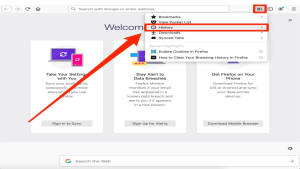
NOTE: this was originally claimed to be a buffer overflow in (1) js320.dll and (2) xpcom_core.dll, but the vendor disputes this claim.
#Mozilla firefox 37.0 2 free download code#
Mozilla Firefox 1.5.0.2, when designMode is enabled, allows remote attackers to cause a denial of service and possibly execute arbitrary code via certain Javascript that is not properly handled by the contentWindow.focus method in an iframe, which causes a reference to a deleted controller context object. NOTE: it is not clear whether this issue is implementation-specific or a problem in the Microsoft API. NOTE: another researcher found that the web page caused a temporary browser slowdown instead of a crash.Īrgument injection vulnerability in Mozilla Firefox 1.0.6 allows user-assisted remote attackers to modify command line arguments to an invoked mail client via " (double quote) characters in a mailto: scheme handler, as demonstrated by launching Microsoft Outlook with an arbitrary filename as an attachment.

Mozilla Firefox 1.5.0.3 allows remote attackers to cause a denial of service via a web page with a large number of IMG elements in which the SRC attribute is a mailto URI. Some third-party researchers claim that they are unable to reproduce this vulnerability. IE Tab 1.0.9 plugin for Mozilla Firefox 1.5.0.3 allows remote user-assisted attackers to cause a denial of service (application crash), possibly due to a null dereference, via certain Javascript, as demonstrated using a url parameter to the content/reloaded.html page in a chrome:// URI. Mozilla Suite 1.7.13, Mozilla Firefox 1.5.0.3 and possibly other versions before before 1.8.0, and Netscape 7.2 and 8.1, and possibly other versions and products, allows remote user-assisted attackers to obtain information such as the installation path by causing exceptions to be thrown and checking the message contents. NOTE: a followup post indicated that the initial report could not be verified. Unspecified versions of Mozilla Firefox allow remote attackers to cause a denial of service (crash) via a web page that contains a large number of nested marquee tags. Mozilla Firefox and Thunderbird before 1.5.0.4 associates XUL attributes with the wrong URL under certain unspecified circumstances, which might allow remote attackers to bypass restrictions by causing a persisted string to be associated with the wrong URL. Unspecified vulnerability in Mozilla Firefox before 1.5.0.4 and SeaMonkey before 1.0.2 allows remote attackers to execute arbitrary code by using the nsISelectionPrivate interface of the Selection object to add a SelectionListener and create notifications that are executed in a privileged context.Ĭertain privileged UI code in Mozilla Firefox and Thunderbird before 1.5.0.4 calls content-defined setters on an object prototype, which allows remote attackers to execute code at a higher privilege than intended. The crypto.signText function in Mozilla Firefox and Thunderbird before 1.5.0.4 allows remote attackers to execute arbitrary code via certain optional Certificate Authority name arguments, which causes an invalid array index and triggers a buffer overflow. This vulnerability affects Firefox tags in a select tag, (2) a DOMNodeRemoved mutation event, (3) "Content-implemented tree views," (4) BoxObjects, (5) the XBL implementation, (6) an iframe that attempts to remove itself, which leads to memory corruption. Other operating systems are not affected.*.

This vulnerability affects Firefox *Note: These attacks requires local system access and only affects Windows. This vulnerability affects Firefox = 4.2.4 and *Note: This attack requires local system access and only affects Windows. Some of these bugs showed evidence of memory corruption and we presume that with enough effort some of these could have been exploited to run arbitrary code. Mozilla developers and community members reported memory safety bugs present in Firefox 90.


 0 kommentar(er)
0 kommentar(er)
